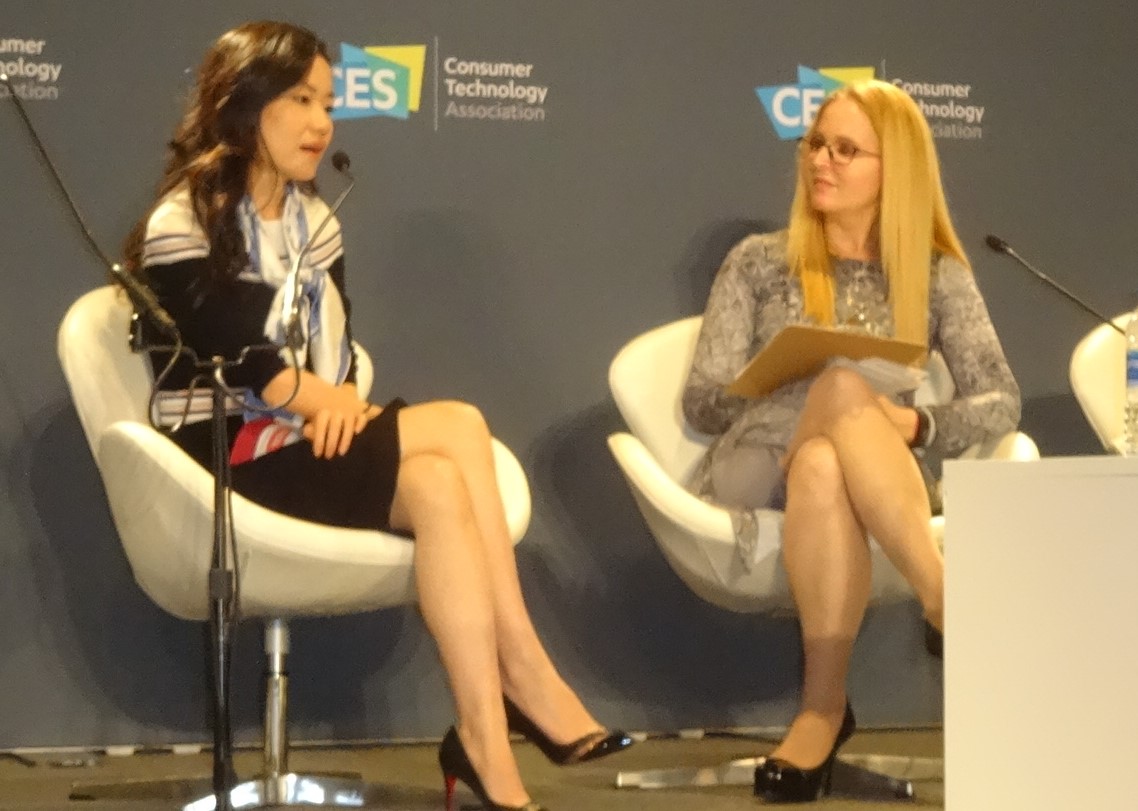Article
China is retailing’s future: Unattended stores, walletless buying and automated warehouses
E-commerce is driving automation on all fronts in China: purchasing; delivery; and supply chain logistics. Artificial intelligence is also driving change.

January 30, 2019 by Elliot Maras — Editor, Kiosk Marketplace & Vending Times
If you want to get a sense of where retailing is headed, look at China, the country with the largest e-commerce presence.
A series of sessions at the CES show in Las Vegas attempted to do just that, hosting experts who have been following e-commerce, automated retailing, same-day delivery and the use of mobile payment.
The key take-away from these sessions, part of the High-Tech Retailing Summit held on day two of CES, was that e-commerce is driving automation on all fronts — from purchasing, to delivery, to supply chain logistics.
Another factor underlying these advances in the world's largest economy is artificial intelligence, according to Deborah Weinswig, CEO of Coresight Research, who presented a session titled, "Understanding the Asian retail market."
 |
| Cecilia Tian of Tencent discusses the importance of the WeChat app in China with Deborah Weinswig of Coresight Research. |
AI-enabled chatbots allow retailers to respond in real-time to customer requests and optimize their promotional messaging, Weinswig said.
In addition, AI-enabled voice recognition allows retailers to target relevant content to individual consumers.
AI can also analyze data to create customer profiles that can be compared with those of similar customers in order to predict preferences and make recommendations, she said.
Dynamic pricing is another AI benefit, Weinswig said. Pricing and promotions can be targeted to individuals based on sales, market conditions, weather and other criteria.
Pricing can be automated for each product by store and can also be adjusted in response to demand and competition, Weinswig said.
AI is also critical to the development of efficient delivery services. AI-based optimization allows reduced waiting time, as the average wait for an e-commerce order in China is 30 minutes.
A 'walletless' society
China is the most mobile-connected society, Weinswig said, pointing out that 98 percent of the country's internet use is mobile, and more than half of all consumers shop using mobile devices daily or weekly.
China is also a "walletless" society. WeChat, the Chinese all-in-one app, is used by 1.08 billion users per month, Weinswig said. WeChat competitor Alipay has 63.6 percent penetration level, WeChat has 84.3 percent penetration. "It's growing exponentially," she said. "What this means is amazing customer experiences and they're all seamless."
The average order paid using an app in China is $6, she said.
WeChat: An online shopping channel
Cecilia Tian, vice general manager for smart retail strategic partnership at Tencent, a provider of internet services, said in a follow-up session that WeChat demonstrates the value that an online shopping channel provides a retailer.
In yet another session, Chen Zhang, chief technology officer at JD.com, the China's second largest e-commerce site after Alibaba, discussed the benefits of drone delivery and automated warehouses. Zhang said that while JD.com has focused on improving speed of delivery, its main goal is authenticity.
JD.com, which Zhang said has more than 300 million active users, uses its extensive data to help retailers understand customer needs. "We can help the brands," he said.
Alibaba, China's e-commerce giant, also uses its data to help brands develop products and packaging, Weinswig said.
Automated stores: China leads the world
China is well ahead of the rest of the world — including the U.S. — with unattended stores. Weinswig mentioned Hangzhou Wahaha Group, which operates one of the country's largest automated retailing operations. Also one of China's largest beverage suppliers, Hangzhou Wahaha Group expanded into automated retailing by acquiring a vending machine company.
In 2017, Hangzhou Wahaha Group launched an automated convenience store, similar to Amazon Go. According to an en.people article, the automated store uses deep learning, machine vision and biometric identification. Customers are automatically billed via Alipay when they leave the store.
Hangzhou Wahaha Group is only one of several such unattended store operators in China, however. During last year's ShopTalk show in Las Vegas, a representative of another Chinese automated store provider, BingoBox, described that company's progress. At that time, there were already 300 BingoBox stores in operation.
About Elliot Maras
Elliot Maras is the editor of Kiosk Marketplace and Vending Times. He brings three decades covering unattended retail and commercial foodservice.










